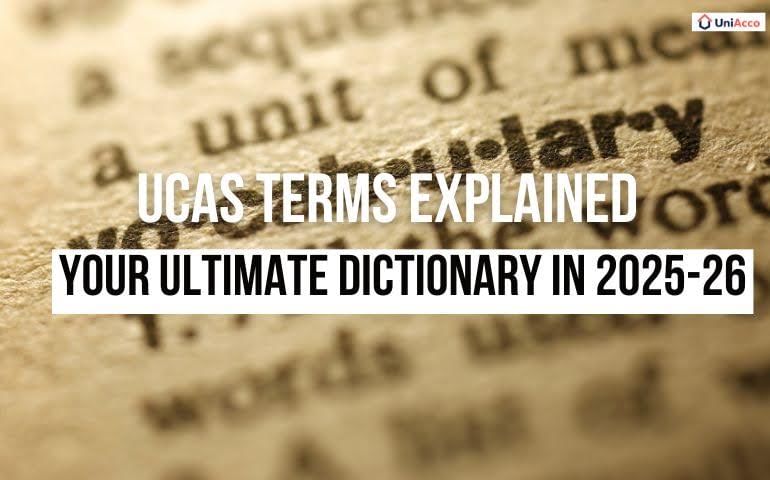Whether you are just considering studying in Montreal or have already received your acceptance letter, you must be curious to know “how much money are you going to need to live comfortably in the city?” Although Montreal is among the most affordable cities in Canada, students, particularly international students, may find it slightly more expensive than in their home country. Students must not only keep a strict monthly budget but also take various steps to reduce their everyday expenses. This blog lists a few money-saving tips and the different essential and non-essential expenses that contribute to the cost of living in Montreal.
Cost Of Living Calculator
| Description | Cost (£) |
|---|---|
| Total Cost of Accommodation | 100 |
| Total Cost of Transport | 50 |
| Total Cost of Utilities | 30 |
| Total Cost of Food | 70 |
| Total Estimated Cost | 250 |
Average Living Expenses In Montreal: An Overview
Some factors determine the overall cost of living in Montreal. This is primarily determined by the type of lifestyle chosen and the budget limit set by the students. International students can expect to pay between $1,900 to $2,500 per month to live in the city. When calculating their budget, students must consider several factors. Take a look at this breakdown of the average monthly cost of living in Montreal –
| Particulars | Prices |
| Off-Campus Accommodation | 900 – 1000 |
| On-Campus Accommodation | 1400 – 1600 |
| Transportation | 85 – 100 |
| Food Cost | 650- 700 |
| Entertainment | 50 – 60 |
| Groceries | 130 – 150 |
| Clothes | 90 – 100 |
Groceries And Food
Managing expenses for groceries and food is essential for budgeting in Montreal. This category includes the cost of purchasing daily essentials, like fresh produce and staples, and dining out at restaurants. Whether cooking at home or enjoying local cuisine, understanding food costs will help you plan your budget effectively.
| Particulars | Prices |
| Apples (1kg) | 3 – 5 |
| Banana (1kg) | 1.20 – 3 |
| Oranges (1kg) | 4 – 6 |
| Tomato (1kg) | 5 – 6.50 |
| Potato (1kg) | 3 – 4 |
| Onion (1kg) | 3 – 4 |
| Lettuce (1 head) | 3 – 4 |
| Water (1.5 litre bottle) | 1 – 3 |
| Bottle of Wine (Mid-Range) | 15 – 20 |
| Budget Meal at a Low-Cost Restaurant | 25 – 30 |
| Three-Course Meal for Two at a Mid-Range Restaurant | 80 – 150 |
| McDonald’s McMeal (or similar combo meal) | 15 – 18 |
| Milk (1 litre, regular) | 2 – 4 |
| Fresh White Bread (500g loaf) | 3 – 5 |
| White Rice (1kg) | 4 – 5 |
| Regular Eggs (12 pack) | 4 – 5 |
| Local Cheese (1kg) | 15 – 20 |
| Chicken Breast Fillets (1kg) | 15 – 18 |
| Beef Round (1kg) or similar red meat | 20 – 22 |
Transportation
In Montreal, transportation is a significant expense to consider. As an international student, you have access to the city’s efficient public transit system, which includes buses and the Metro. Student discounts and passes can significantly reduce costs, so take advantage of these offers. Planning for these transportation costs will help you explore the city comfortably and stay within your budget.
| Mode Of Transport | Fare |
| One-Way Ticket (Public Transport) | 3.50 – 4 |
| Regular Monthly Pass | 95 – 100 |
| Taxi Waiting Time (1 hour, Standard Rate) | 46 – 50 |
Entertainment And Leisure
To maximise your time without stretching your budget, consider taking advantage of student discounts and passes. Many venues and events offer reduced student rates, so watch for these deals. Additionally, look into city passes that provide access to multiple attractions at a lower cost. With a bit of savvy budgeting and these discounts, you can savour all Montreal offers while keeping your finances in check.
| Particulars | Prices |
| Monthly Membership Fee for a Fitness Club (1 Adult) | 40 – 50 |
| Tennis Court Rental (1 Hour on the Weekend) | 15 – 20 |
| Cinema Ticket for an International Release (1 Seat) | 13 – 15 |
Utilities
As an international student renting accommodation in Montreal, you must know various costs to manage your budget effectively. By understanding and planning for these expenses, you can take control of your finances and stay on top of regular utility bills. However, when you book with UniAcco, there’s no need to worry about handling multiple payments—your rent covers all utilities, making budgeting even more manageable.
| Particulars | Prices |
| Utilities (Electricity, Heating, Cooling, Water, Garbage) for an 85m² Apartment | 100 – 160 |
| Monthly Mobile Phone Plan with Calls and 10GB+ Data | 40 – 60 |
| High-Speed Internet (60 Mbps with Unlimited Data, Cable/ADSL) | 45 – 65 |
Cost Of Healthcare
Montreal’s healthcare is known for its accessibility and high quality, offering a comprehensive range of services to its residents. Montreal’s healthcare facilities, including numerous hospitals and specialised clinics, provide cutting-edge treatments and diverse medical services. Additionally, the city boasts a strong network of family doctors and specialists, contributing to a robust healthcare system that supports the well-being of its community.
Eligibility For Public Healthcare
International students studying in Quebec may be eligible for the Régie de l’assurance maladie du Québec (RAMQ), which provides basic health coverage. However, eligibility typically requires students from countries with reciprocal agreements with Quebec.
For students not eligible for RAMQ, private health insurance is mandatory.
Cost Of Health Insurance
Public Health Insurance (RAMQ): Basic coverage is free for those eligible; however, dental and vision care are generally not included.
Private Health Insurance: Costs can range from CAD 600 to CAD 900 per year. This insurance usually covers medical expenses, hospital visits, and prescription medications.
University-Specific Plans: Many universities in Montreal, such as Université de Montréal, automatically enrol international students in a group health insurance plan upon registration. This plan typically covers:
- Medical expenses
- Hospital fees
- Prescription drugs (with some limitations)
- The cost for these university plans can vary but is often around CAD 300 to CAD 800 per year, depending on the coverage level and provider.
Supplemental Insurance Options: Students may also opt for supplemental insurance to cover services not included in basic plans, such as dental and vision care. For example, dental insurance can cost approximately CAD 195 per year.
Studying In Montreal
Studying in Montreal as an international student provides a rich academic environment with programs recognised globally for excellence. Montreal is uniquely bilingual, offering courses in both English and French, allowing students to immerse themselves in a diverse learning atmosphere. Below, we have provided a list of universities, popular programmes, and average tuition fees.
| University | Average Tuition Fees (CAD $) | Popular Programmes |
| McGill University | 21,000 – 56,000 | MBA, MSc Computer Science |
| University of Montreal | 12,000 – 30,000 | Engineering, Medicine |
| Concordia University | 22,000 – 32,000 | Business (John Molson School) |
| HEC Montréal | 30,000 – 65,000 | MBA |
| Polytechnic School of Montreal | 15,000 – 30,000 | Various Engineering Disciplines |
Visa Costs
When planning to study in Canada, understanding the visa costs is essential to your preparation. Beyond tuition fees and living expenses, various charges are involved in securing your student visa, such as the application and biometrics fees. Staying informed about these fees will help you go about the process smoothly.
| Expense | Cost | Details |
| Visa Application Fee | CAD 150 (approx. INR 9,300) | Required for all students applying for a student visa to study in Canada. |
| Biometrics Fee | CAD 85 | Applicable if biometrics (fingerprints and photographs) are required for the visa application. |
| Certificate of Acceptance of Quebec (CAQ) | CAD 120 (approx.) | Mandatory for international students studying in Quebec, issued by the Government of Quebec. |
| Proof of Funds | CAD 11,000 (approx. for one year) | Students must show sufficient funds to cover tuition and living expenses, with CAD 11,000 required for living expenses in Quebec for one year. |
| Health Insurance | CAD 600 – 800 per year | Health insurance is typically required for international students, though it’s not a direct visa cost. |
Minimum Wage In Montreal V/s Other Provinces
The minimum wage in Quebec, which includes Montreal, will be CAD 15.75 per hour. This increase from the previous rate of CAD 15.25 reflects a rise of CAD 0.50, aimed at addressing economic challenges faced by workers in various sectors, particularly retail and hospitality.
| Province/Territory | Minimum Wage (CAD) |
| British Columbia | $17.40 |
| Alberta | $15.00 |
| Manitoba | $15.30 |
| New Brunswick | $15.30 |
| Newfoundland and Labrador | $15.60 |
| Ontario | $16.55 |
| Nova Scotia | $15.20 |
| Prince Edward Island | $15.40 |
| Saskatchewan | $14.00 |
| Nunavut | $19.00 |
Montreal remains one of the most affordable major cities in Canada for students, offering a wide range of accommodation options and services that suit different budgets. While the cost of living may vary depending on your lifestyle and housing choice, careful budgeting and smart financial planning can make your time in the city enjoyable without overspending. By considering factors like rent, transportation, groceries, and entertainment, students can manage their expenses effectively and fully experience opportunities Montreal has to offer in 2025.
FAQs
How much does it cost to live in Canada for international students 2024?
In 2024, international students in Canada should allocate approximately CAD 20,635 per year for living expenses, not including tuition and airfare, to maintain a comfortable lifestyle.
Which bank is best for international students in Montreal?
The best banks for international students in Montreal include BMO, CIBC, RBC, and Scotiabank, all of which offer student-friendly accounts with low fees and accessible services.
Can I work in Montreal as an international student?
Yes, you can work in Montreal as an international student, but only after your study program begins. If your study permit allows off-campus work, you won’t need a separate work permit.
How much should I earn in Montreal?
In Montreal, typical salaries range from $45,250 to $68,250 annually, depending on your role and experience. This range gives you a good idea of what to aim for to enjoy a comfortable lifestyle in the city.
Where are people moving to in Canada in 2025?
People are moving to Toronto, Vancouver, and Calgary, as these cities are considered some of the best places for newcomers to settle in Canada.
Found this blog informative? Check out the links below to explore similar topics.















0 Comments